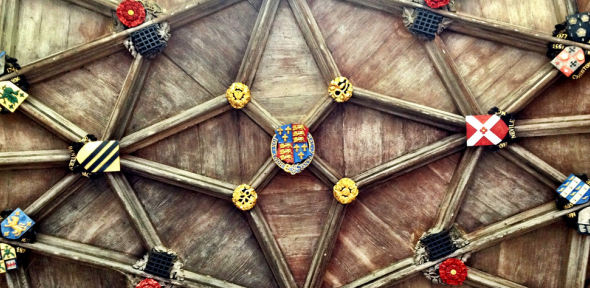
People
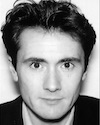 |
Hugues Azérad specialises in comparative literature and aesthetics (Proust, Joyce, Faulkner, Bonnefoy, Glissant, Nerval, Benjamin, Adorno, Rancière), postcolonial literature, modernisms, utopia, film, French literature/poetry from 19th century to the present and links between Language learning and cultural studies. |
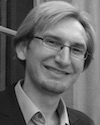 |
Gregor Babelotzky's research interests lie primarily in the area of German literature from the 18th century to modernism, with a special interest in historical-critical editing. |
|
Bryan Cameron's research centers on modern Spanish culture with a particular focus on literary, filmic and ideological production from the eighteenth century to the present. |
|
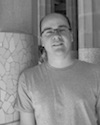 |
Stuart Davis specialises in modern and contemporary Spanish Peninsular culture, with a particular interest in memory, shame and other emotions in literature, film and visual cultures. He has long standing interests in in canon theory, metacriticism, museum studies and representations of gender and sexuality. |
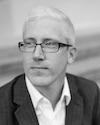 |
Rory Finnin's primary research interest is the interplay of literature and national identity in Ukraine. He also studies Soviet Russian dissident literature and Turkish nationalist literature. His broader interests include nationalism theory, human rights discourse, and problems of cultural memory. |
|
Miranda Gill works mainly on nineteenth-century French literature and European thought. Her research focuses on the history of the emotions and pre-scientific moral psychology. She is particularly interested in the relationship between masculinity, the emotions, and self-control in literary and discursive texts. |
|
 |
John Guthrie works on German literature, thought and culture from the eighteenth century to the present day, Anglo-German literary relations in the eighteenth, nineteenth and twentieth centuries, German aesthetics and literary criticism, German drama and theatre, and translation and adaptation. |
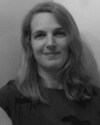 |
Vivien Kogut Lessa de Sá is interested in comparative studies involving Brazilian, Portuguese and English literatures and in early modern travel writing. |
|
Susan Larsen's research focuses primarily on questions of gender and national identity in Russian culture from the late 18th century through the present. Current projects include work on Russian girls' culture, 1764-1917; sound in 1960s Soviet cinema; late Soviet musicals; and contemporary Russian documentary. Earlier work includes studies of Mikhail Bulgakov and 20th-century Russian theatre. |
|
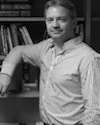 |
Adam Ledgeway is Professor of Italian and Romance Linguistics and his research interests include the comparative history and morphosyntax of the Romance languages, Italian dialectology, Latin, Italo-Greek, syntactic theory, and linguistic change. His research is channelled towards bringing together traditional Romance philological scholarship with the insights of recent generative syntactic theory. |
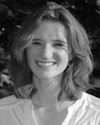 |
Charlotte Lee specialises in German literature and thought. Her first book was on Goethe, and her current project looks at the role of movement in the work of a range of poets. |
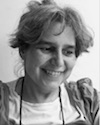 |
Maria Manuel (Manucha) Lisboa's research interests lie in the area of manifestations of political, religious and social dissent in literary and visual texts in Portugal and Brazil from the nineteenth century to the present. |
|
Annja Neumann works on literature and medicine in Modern German literature. Her research explores Medical Humanities and Digital Humanities through Literary Studies and is closely linked to the digital critical edition of Arthur Schnitzler’s middle period works. She is particularly interested in interrelations between medical topographies and poetics of doctor-writers. The conjunction between body and textuality also defines her research on 20th century poetry. |
|
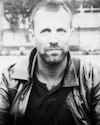 |
Rory O'Bryen’s research focuses on nineteenth and twentieth-century Colombian culture, and specifically on the intersections between literature and politics. |
|
Rachel Polonsky works mainly on nineteenth and twentieth century literature and cultural and political history. She is currently researching Russia's relationship with the near east. |
|
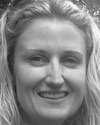 |
Kylie Richardson’s research has focused in the past on issues in Slavonic linguistics, and primarily on Slavonic morpho-syntax. She is still interested in topics in Slavonic aspect. She is, however, currently working on language and consciousness, which includes researching the shamanic explorers of consciousness in Slavonic history and culture. |
 |
Lucia Ruprecht is researching across literature, dance, and film studies, from around 1800 to the 21st century. She has specific interests in theories of subjectivity, the relationship between performance and discourse, virtuosity as a cultural paradigm, cultures of gesture, and new theoretical approaches to dance historiography. |
 |
Alison Sinclair, who retired in September 2014, specialises in nineteenth-century and early twentieth-century Peninsular literature, culture and intellectual history, with a focus on popular culture and cultural transmissions. She was PI on the AHRC-funded project ‘Wrongdoing in Spain 1800-1936: Realities, Representations, Reactions’ (2011-2014), and is currently part of a project to compile a universal catalogue of Spanish chapbooks (pliegos sueltos). |
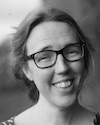 |
Alyson Tapp's areas of research are Russian literature of the nineteenth and early twentieth centuries: genre, narrative, subjectivity; history and theory of the novel and of the lyric; natural history, nature writing. |
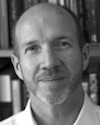 |
Andrew J. Webber’s research covers a wide range of textual and visual culture over the modern period. He has particular interests in questions of identity and place, in relationships between literature, film and other media, and in cultural theory. |
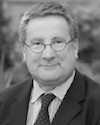 |
Joachim Whaley's research so far has concentrated on the history of the Holy Roman Empire in the early modern period. He has also written extensively on the German Enlightenment and its legacy in the nineteenth and twentieth centuries. Further fields of interest on which he has published regularly are the question of German identity since the fifteenth century, the German memory of the Reformation from the sixteenth century to the present and the historiography of medieval and early modern German history in the nineteenth and twentieth centuries. He is currently working on a larger project that will survey the history of German-speaking Europe from the Middle Ages to the present day. |
|
Nick White's research focuses on 19th century French literature, with a particular interest in the issues of war, friendship, love, marriage, and the family, and in the methods of cultural and literary history. Having written books on "The Family in Crisis in Late Nineteenth-Century French Fiction" (1999) and "French Divorce Fiction from the Revolution to the First World War" (2012), he is currently writing on the "war before the First World War": in other words, the Franco-Prussian War and the Commune (1870-71). |


